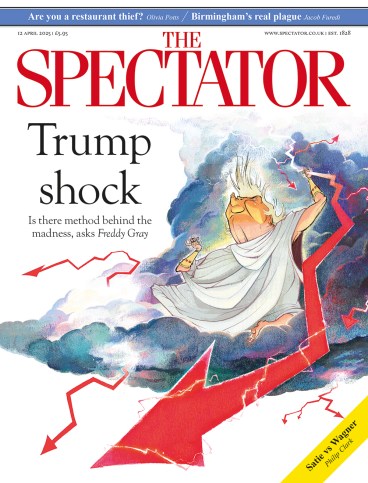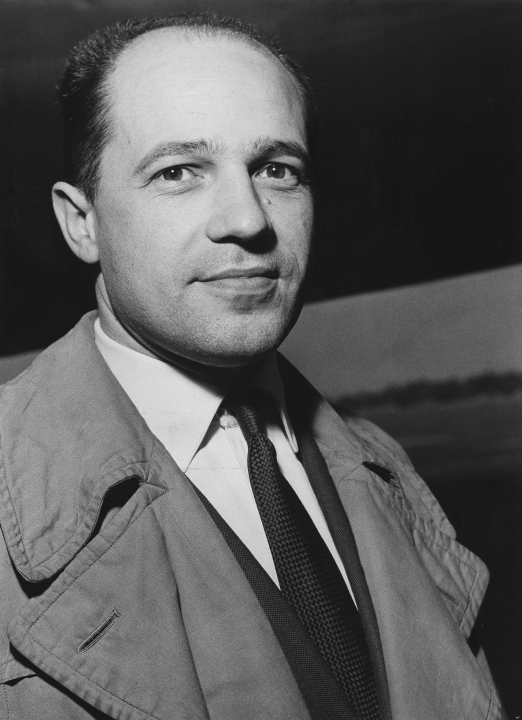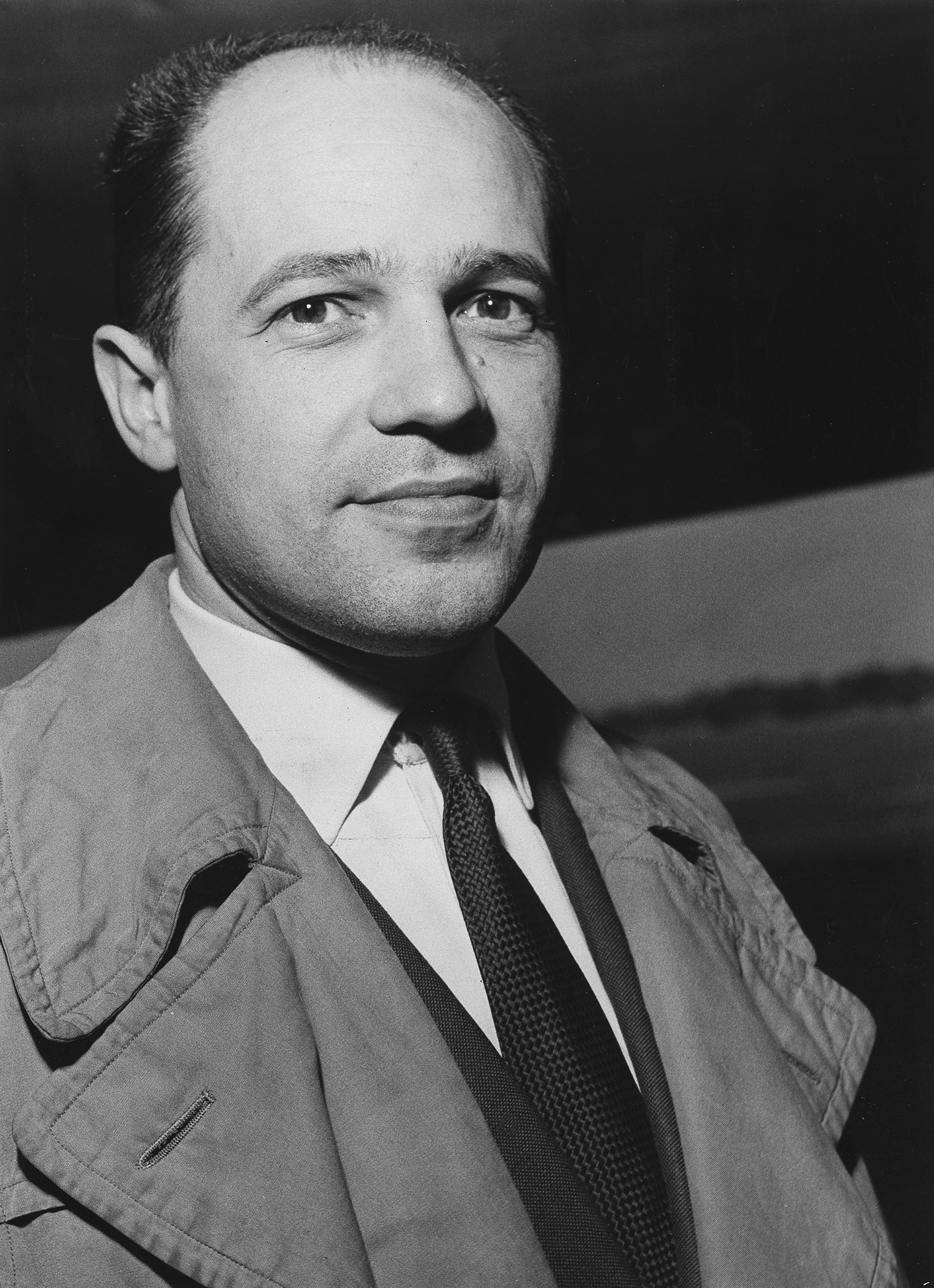
‘When you’re not offensive in life, you obtain absolutely nothing,’ declares a twinkly-eyed Pierre Boulez in one of the archive films that the Barbican were screening to celebrate the composer’s centenary. What a joy to be reminded of the young Boulez – the unashamed elitist, the unbeatable snob. Not even allies such as Schoenberg (too trad) and Messiaen (‘vulgar’) were safe from his tongue. To Boulez, pop music wasn’t good or bad; it didn’t exist. Ditto his own life. ‘I will be the first composer without a biography’, he proclaimed. Forget that Boulez was entangled in a love triangle with Camus’s mistress and for most of his time on earth screwing his valet, Hans… The music was everything.
He was, in other words, the embodiment of everything that music, society and Radio 3 today is not. Which made it all the more amusing that it fell to the BBC to organise the birthday celebrations. (He was once the BBC Symphony Orchestra’s principal conductor.)
True to what we’ve come to expect from Radio 3’s controller Sam Jackson, their Boulez Day began with no Boulez. Three and a half hours in and we’d heard works by all the key influences on Boulez – Finzi, Lehar and, of course, Carnival of the Animals – before they considered airing more than a single movement of a single sonata by the composer the day was dedicated to.
The Barbican’s Total Immersion programme with the BBCSO had a bit more belief in the possibility that people might actually want to listen to the music. There was a decent spread of work from across Boulez’s career over two busy concerts (you can hear these on BBC Sounds). But I couldn’t help being reminded of the bounteous Total Immersions of a decade ago that involved vast three-day programmes with dozens of performances, usually focusing on composers far more recherché than Boulez.
Still, what we got was superb. Before the rise of free-improv freak-outs, Boulez’s early work was some of the most violently disjointed music ever created. In his Second Piano Sonata (1947-8) he straps the whole sonata-form in a suicide vest and cheerily pulls the chain. Tamara Stefanovich – stepping in at the last minute – was tasked with sending the notes flying at Milton Court. Before honouring Boulez’s instructions to ‘pulverise the sound’, however, she first introduced a feline lyricism to the slow movement that, in its arched padding about, put me in mind of the Andante from Schubert’s D959. (Hard to obliterate the past fully, Pierre, sorry.)
But obliteration did come. And it was electrifying. Early Boulez is a form of disaster porn: like watching a controlled detonation or a fire in a fireworks factory. ‘But I still don’t understand why he chose those notes rather than any others?’ grumbled one audience member on the way out. Actually, Boulez wasn’t that fussed about this. ‘Sixty per cent of the notes is fine,’ he once told a pianist. What mattered in the early work was mood, speed, shape, spacing, attack. It’s not in the least bit intellectual – except in its construction. That is the paradox of Boulez: to summon up the chaos you need a high level of control.
‘Organised delirium,’ he called it, quoting the arch avant-gardist Antonin Artaud. This is also the title of a new academic survey looking at what shaped Boulez’s soundworld by Caroline Potter, whose intriguing central argument is that his formative years must be understood through the prism of surrealism. (He had absorbed many of the movement’s key ideas, counted several Belgian surrealists among his closest friends and champions, and was obsessed with Artaud’s wild declamatory style.)
Once the seed is planted, you see it everywhere, especially in BBCSO’s incandescent performance of Pli selon pli (1957-60/2003), conducted by Martyn Brabbins and sung by Anna Dennis. After all, what was this vast canvas of outlandish sound images other than a Boschian hellscape: full of bizarre incident, all thuggishly thronging the foreground, hyper-detailed yet constantly metamorphosing.

Event
Spectator Writers’ Dinner with Richard Bratby
This fidgetiness of texture is also reminiscent of those late surrealist paintings by the likes of André Masson, where every shape, line and colour finds itself morphing into every other shape, line and colour. This is the quality, I think, that exhausts some people. It’s what exhausted me in Cummings ist der Dichter (1970/1986): too many ideas, too quickly dispatched – though it possibly just needed a bit more magic from Brabbins. A great performance – such as we got in Domaines (1961-8), the extraordinary student Lily Payne making a restless, purring house cat of her clarinet – can transform a work.
Late Boulez – irrigated, reverberant, lush – is a whole other world to the fiery sandscapes of his youth. I used to love all the glistening splooshing about in Sur incises (1996/1998), which the Royal Academy of Music presented for his actual birthday. And it’s still a good place for sceptics to start: it’s where all the qualities absent from his youth – beauty, harmony, drama, even a certain linear welly – suddenly appear, shimmering and transcendent on pianos, harps and percussion. But it didn’t quite hit this time. There are rip tides in these waterways that didn’t surface. What Boulez accused many of doing to Debussy – of turning him into something glibly French, between ‘a marron glacés and Chanel No. 5’ – is a fate that all too easily befalls his own silky Gallic final pieces.
People often get their knickers in a twist over Boulez – and experimental modernism in general – because they assume they’re meant to be following something. And when they find it impossible to follow anything they think they must have missed some vital piece of homework. But there isn’t any homework. And often there’s not really anything to follow. All that’s demanded is that you respond to each sound as it is. At its best, it’s liberating, invigorating stuff. And it deserves a more dedicated champion than Radio 3, whose unofficial policy seems to be to prevent anything atonal going out on air in daylight hours.








Comments